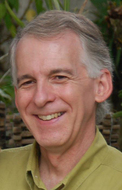After making the connection between “functional religion” and economics, I decided to continue working on a description of the Multi Earth economy’s deities, how that worldview understands salvation, sin, and human nature; who its priests, teachers, and evangelists are; what its rituals are and where to find its holy places.
I had handed out an abbreviated version of this “overview of Multi Earth theology” when I presented my paper at the Nurturing the Prophetic Imagination conference. But following the conference, I fleshed these out in more detail, again grateful for the introductory start given by Barry Shelley back in 2004, when he created a quick and dirty chart on newsprint, identifying components of religious function in the economy. That chart was my launch pad for what will follow in several subsequent blog entries as I give an overview of the economic religion that shapes Multi Earth living.
Quotes from French philosopher Paul Ricoeur and the Hebrew seer Isaiah, though separated by 2800 years, add dimension to Cavanaugh’s “functional religion.” I use them here to preface my introduction to the economic religion and theology of Multi Earth living.
In our time we have not finished doing away with idols and we have barely begun to listen to symbols.
— Paul Ricoeur, French philosopher (1913-2005)
Their land is filled with silver and gold, and there is no end to their treasures; … their land is filled with idols.
— Isaiah, Hebrew seer, 8th century B.C.E.
 Lee Van Ham Posted on
Lee Van Ham Posted on  Monday, December 16, 2013 at 9:50AM
Monday, December 16, 2013 at 9:50AM  For the past decade Barry Shelley and I have shared treasured experiences. My only complaint is that they’ve been too few. As I go into detail about in my book, Blinded by Progress, Barry helped me see that the current economy functions as one of the world’s leading religions. More precisely, the leading religion.
For the past decade Barry Shelley and I have shared treasured experiences. My only complaint is that they’ve been too few. As I go into detail about in my book, Blinded by Progress, Barry helped me see that the current economy functions as one of the world’s leading religions. More precisely, the leading religion.